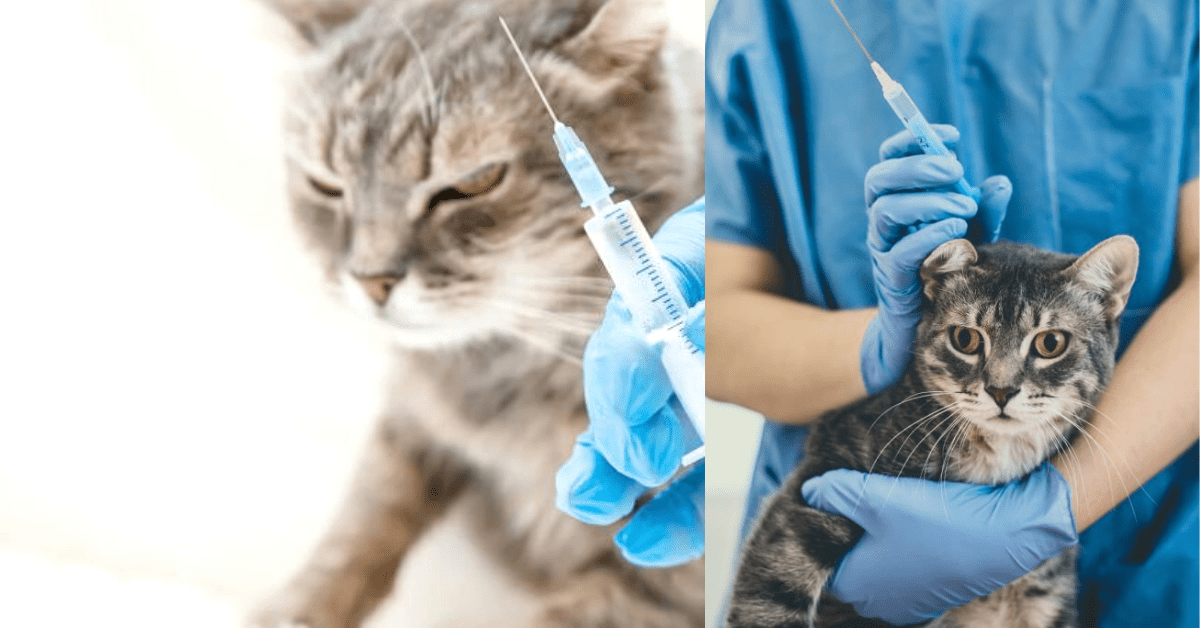What's Inside
Most diabetic cats require insulin to treat their diabetes. Diet is also an important part to consider during diabetes and in certain cats, diabetes can be managed by simply following a healthy diet.
But in most cases, insulin is used as the treatment of feline diabetes. However, close observation of the cat is necessary during the treatment of feline diabetes using insulin. This is because an adequate amount of insulin must be injected into the cats otherwise cats will not show the required response.
Is Insulin Effective In My Cat?
Moreover, overdosage of insulin will cause the cat to lower their blood sugar level than the normal amount and this condition is called hypoglycemia. Hypoglycemia is a very dangerous situation where the cat may even lead to death.

The Normal Signs To Identify Diabetes🐈
1. Increase in the frequency of urination
2. Increase in thirst and appetite
3. Noticeable weight loss
4. Increased blood sugar can also make a cat lethargic and fall ill. All these signs along with vomiting and loss of appetite can ensure that a cat is diabetic.
If you notice the signs of diabetes in your can even if they are treated with insulin you can conclude that their body is not reacting to insulin or in other words, insulin is not working in their body😫. However, you can confirm it by consulting your kitten with a veterinary doctor and he does many blood tests to diagnose the problem.
There are cases when the doctor identifies the insulin is not working in cats by watching their physical appearance i.e, the doctor feels the weight loss of the kitten when compared to the previous veterinary visit. But there are several other ways too.
Blood glucose test: In a blood glucose test, the doctor checks for the presence of sugar in the blood of the cat even while using insulin. But this test is not always accurate because most cats are stressed during the visit to a veterinary doctor and it leads to a temporary but significant elevation in the blood sugar level.
This condition is called stress hyperglycaemia. Even if the cat is healthy sometimes this test may show them high blood sugar due to stress. So other tests are also done to confirm the working of insulin further.
Fructosamine: Fructosamine is another test done in cats to clarify blood glucose tests. In this test, a precise evaluation is made using the information of the blood glucose in the last couple of weeks and clarifies whether diabetes appears only during the veterinary visit.
Glucosuria: Glucosuria is the test used to test diabetes with the urine of the cat. But this test will show the result only when the blood sugar is too high and glucose gets deposited in the urine.
There are several other methods also to test the working of insulin which includes the use of a more advanced bloodwork panel, and testing using radiographs.
Insulin Resistance
Feline diabetics should be closely examined and they must not be allowed to play outdoor as they are many risk factors. All their activities should be watched and insulin doses should be given in adequate amounts. There is a chance of insulin resistance which may lead to hyperglycemia or hypoglycemia.
Insulin resistance will occur when the insulin injected is not able to regulate the blood glucose level in cats. There are many causes of insulin resistance.
Improper Administration Of Insulin: Improper amount of insulin intake may prevent the cat from receiving the accurate dose required. So you must always be careful while injecting insulin.
Using Inactive Insulin: If the insulin is not stored properly, exposed to high temperature, or used after its expiration date, it will fail to give an expected result. So always use a new bottle of insulin for this purpose.
Changes In Food: If the food habits of the kitten are changed, it may also prevent the insulin from regulating blood glucose and cause insulin resistance. So you must very careful while changing the diet of cats. Always speak to a veterinary doctor before doing it.
Conclusion
Feline diabetes is one that should be considered seriously and the regulation of blood glucose is necessary. Insulin is the main treatment given for feline diabetes and you must make sure that insulin is working properly in your cat. You can determine the successful regulation of feline diabetes by observing the blood glucose curve and their behaviour like appetite, frequency of urination, water consumption, and activeness.

